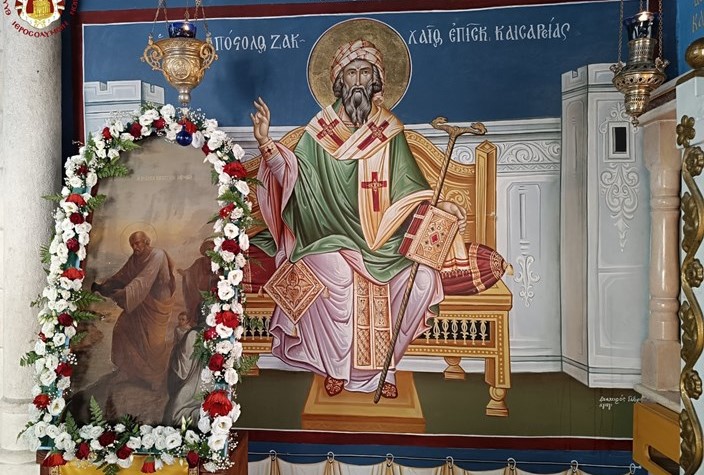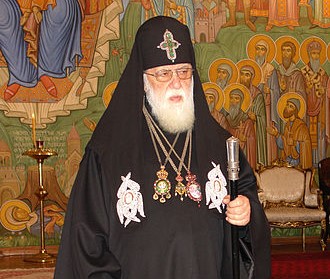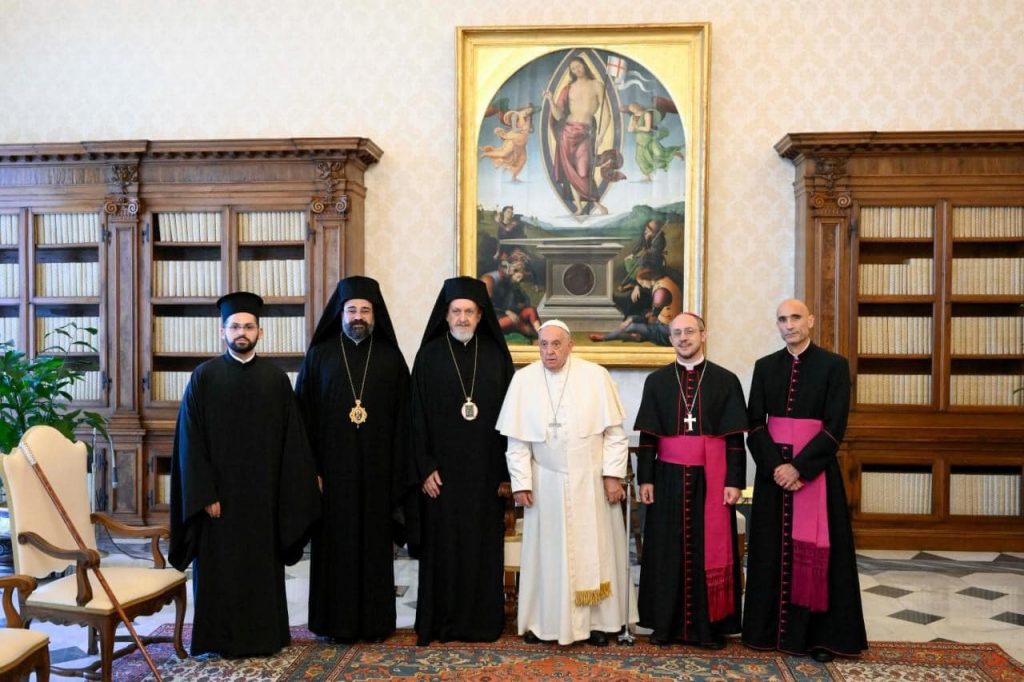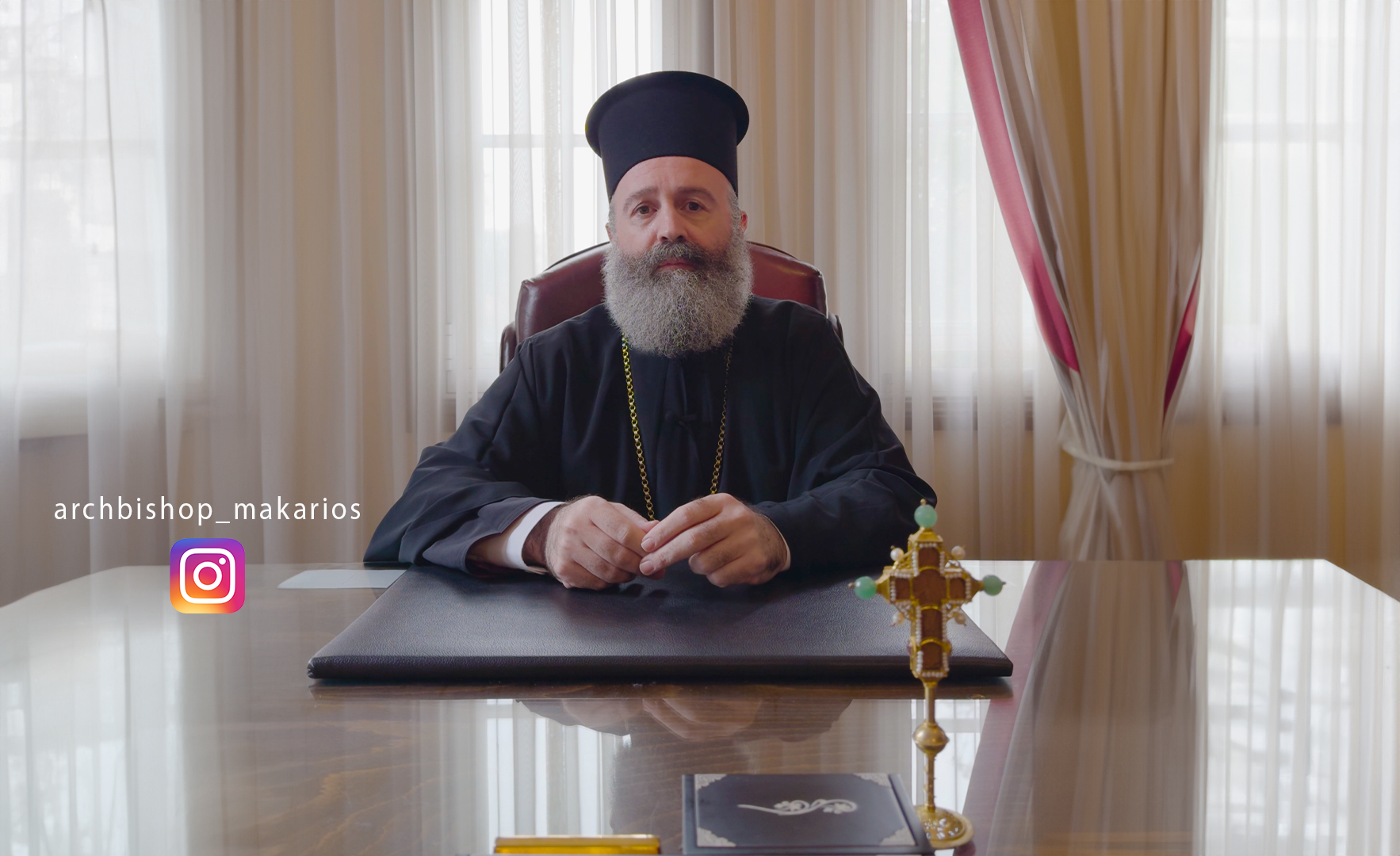Ecumenical Patriarch Bartholomew: The Great Church has been pivotal in shaping and preserving our identity
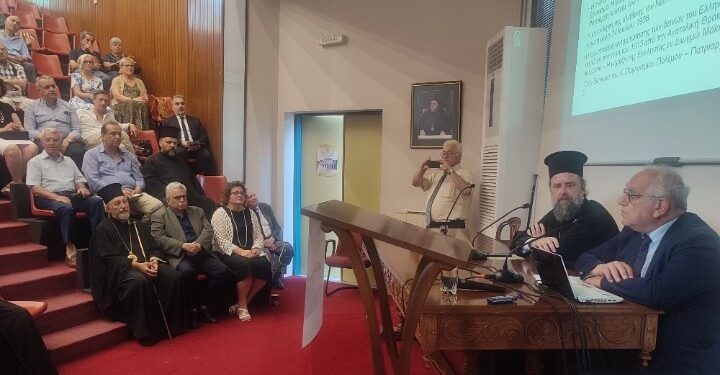

In a written message at the scientific symposium titled “The Ecumenical Patriarchate and the Roman Communities of Constantinople, Imbros, and Tenedos,” His All-Holiness Ecumenical Patriarch Bartholomew highlighted the contribution of the Ecumenical Patriarchate to the formation and preservation of the spiritual and cultural heritage of the Nation. The opening ceremony occurred yesterday at the Patriarchal Institute for Patristic Studies Amphitheater, located in the Holy Monastery of Vlatadon in Thessaloniki.
“We are particularly pleased because your conference extensively addresses the ever-relevant issues of education, whether concerning the Holy Theological School of Halki, whose reopening is positively back in the spotlight…” Patriarch Bartholomew noted among other things.
“In the critical moments for Romiosini, the Ecumenical Patriarchate was at the centre of events and developments, unwaveringly faithful to the doctrines of our Orthodox faith and ancestral traditions, with wisdom, prudence, and a healthy sense of what is beneficial, never indifferent to the course of human affairs, in the awareness that these are in the hands of the benevolent God, who does not want man to be inactive and passive, but active and cooperative in the transformation of the world,” noted Patriarch Bartholomew in his message, which was read by His Eminence Metropolitan Apostolos of Miletus, abbot of the Monastery of Saint Anastasia.
“The Great Church has been pivotal in shaping and preserving our spiritual and cultural identity. It is to this Church that we owe the development of our education; from it emerged the forces that bore fruit in all areas of life and culture of Romiosini. The saints and martyrs of the Church of Constantinople were a comfort in times of hardship and a hope for the future,” continued Patriarch Bartholomew in his written message, adding:
“We are particularly pleased because your conference extensively addresses the ever-relevant issues of education, whether concerning the Holy Theological School of Halki, whose reopening is positively back in the spotlight, or more generally about the course of community education during the critical decades of the 1960s and 1970s and today, or with special reference to the educational challenges and prospects of Imbros and Tenedos.”
Ecumenical Patriarch Bartholomew expressed his satisfaction with the presentations by experts on the architecture of the churches and monuments in the areas covered by the conference and the references to relics and icons as elements of “artistic expression” and as “testimonies of piety” and religiosity, as well as for the recording of folk traditions, emphasising:
“We thank you for your contribution to enriching historical memory so that the imprint of the Nation in its historical cradles is not consigned to oblivion, so that we can learn from the presence, struggles, vigilance, persistence, hopes, and trust in the providence of the God of love, to understand that a fundamental factor for the future of Romiosini is for us to believe in it ourselves.”
Ecumenical Patriarch Bartholomew sent a message of safeguarding and transmitting historical memory to future generations.
“In this regard, we address our youth and call on them to fight for the community and its future, which is their future, inspired by the past but with a steadfast focus on the positive possibilities and prospects that the present contains,” emphasised the Ecumenical Patriarch.
The symposium is organised with the contribution of the Society for Macedonian Studies, in collaboration with ecclesiastical, scientific, educational, and social bodies of Thessaloniki. It is under the auspices of the Ecumenical Patriarchate.
In his address, His Excellency Ambassador Alexis Alexandris referred to the “informal consultations” between the Ecumenical Patriarchate and the Turkish government in 1971 regarding the operation of the Halki Theological School. He noted that the school was closed in 1971 by the law abolishing private university institutions in Turkey and that the dilemma posed by the Turkish side at that time was either to integrate the school into the state university structures as part of higher education or, as ultimately happened, to cease its operation.
Representatives of the Ecumenical Patriarchate opposed its integration into the state education system but failed to ensure its continuation as a “minority theological school” for training Orthodox Church officials, as provided by the Treaty of Lausanne.
The scientific symposium was attended by His Eminence Metropolitan Filotheos of Thessaloniki, who chaired the opening session, the abbot of the Holy Monastery of Vlatadon, Metropolitan Nikiforos of Amorion, Professors from the fields of Theology, Architecture, and Archaeology, the president of the Society for Macedonian Studies Mr. Vasileios Pappas, the director of the Patriarchal Institute for Patristic Studies Mr. Symeon Paschalidis, and others.
Source: orthodoxtimes.com

